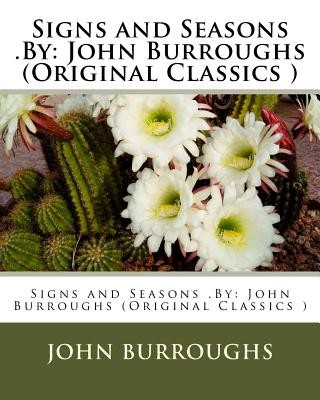
- We will send in 10–14 business days.
- Author: John Burroughs
- Publisher: CreateSpace Independent Publishing Platform
- Year: 2016
- Pages: 98
- ISBN-10: 1539904601
- ISBN-13: 9781539904601
- Format: 20.3 x 25.4 x 0.5 cm, minkšti viršeliai
- Language: English
- SAVE -10% with code: EXTRA
Reviews
Description
John Burroughs (April 3, 1837 - March 29, 1921) was an American naturalist and nature essayist, active in the U.S. conservation movement. The first of his essay collections was Wake-Robin in 1871. In the words of his biographer Edward Renehan, Burroughs' special identity was less that of a scientific naturalist than that of "a literary naturalist with a duty to record his own unique perceptions of the natural world." The result was a body of work whose resonance with the tone of its cultural moment explains both its popularity at that time, and its relative obscurity since.Burroughs was the seventh of Chauncy and Amy Kelly Burroughs' ten children. He was born on the family farm in the Catskill Mountains, near Roxbury in Delaware County, New York. As a child he spent many hours on the slopes of Old Clump Mountain, looking off to the east and the higher peaks of the Catskills, especially Slide Mountain, which he would later write about. As he labored on the family farm he was captivated by the return of the birds each spring and other wildlife around the family farm including frogs and bumblebees. In his later years he credited his life as a farm boy for his subsequent love of nature and feeling of kinship with all rural things. During his teen years Burroughs showed a keen interest in learning. Among Burroughs's classmates was future financier Jay Gould.[5] Burroughs' father believed the basic education provided by the local school was enough and refused to support the young Burroughs when he asked for money to pay for the books or the higher education he wanted. At the age of 17 Burroughs left home to earn the money he needed for college by teaching at a school in Olive, New York.
- Author: John Burroughs
- Publisher: CreateSpace Independent Publishing Platform
- Year: 2016
- Pages: 98
- ISBN-10: 1539904601
- ISBN-13: 9781539904601
- Format: 20.3 x 25.4 x 0.5 cm, minkšti viršeliai
- Language: English English
John Burroughs (April 3, 1837 - March 29, 1921) was an American naturalist and nature essayist, active in the U.S. conservation movement. The first of his essay collections was Wake-Robin in 1871. In the words of his biographer Edward Renehan, Burroughs' special identity was less that of a scientific naturalist than that of "a literary naturalist with a duty to record his own unique perceptions of the natural world." The result was a body of work whose resonance with the tone of its cultural moment explains both its popularity at that time, and its relative obscurity since.Burroughs was the seventh of Chauncy and Amy Kelly Burroughs' ten children. He was born on the family farm in the Catskill Mountains, near Roxbury in Delaware County, New York. As a child he spent many hours on the slopes of Old Clump Mountain, looking off to the east and the higher peaks of the Catskills, especially Slide Mountain, which he would later write about. As he labored on the family farm he was captivated by the return of the birds each spring and other wildlife around the family farm including frogs and bumblebees. In his later years he credited his life as a farm boy for his subsequent love of nature and feeling of kinship with all rural things. During his teen years Burroughs showed a keen interest in learning. Among Burroughs's classmates was future financier Jay Gould.[5] Burroughs' father believed the basic education provided by the local school was enough and refused to support the young Burroughs when he asked for money to pay for the books or the higher education he wanted. At the age of 17 Burroughs left home to earn the money he needed for college by teaching at a school in Olive, New York.


Reviews